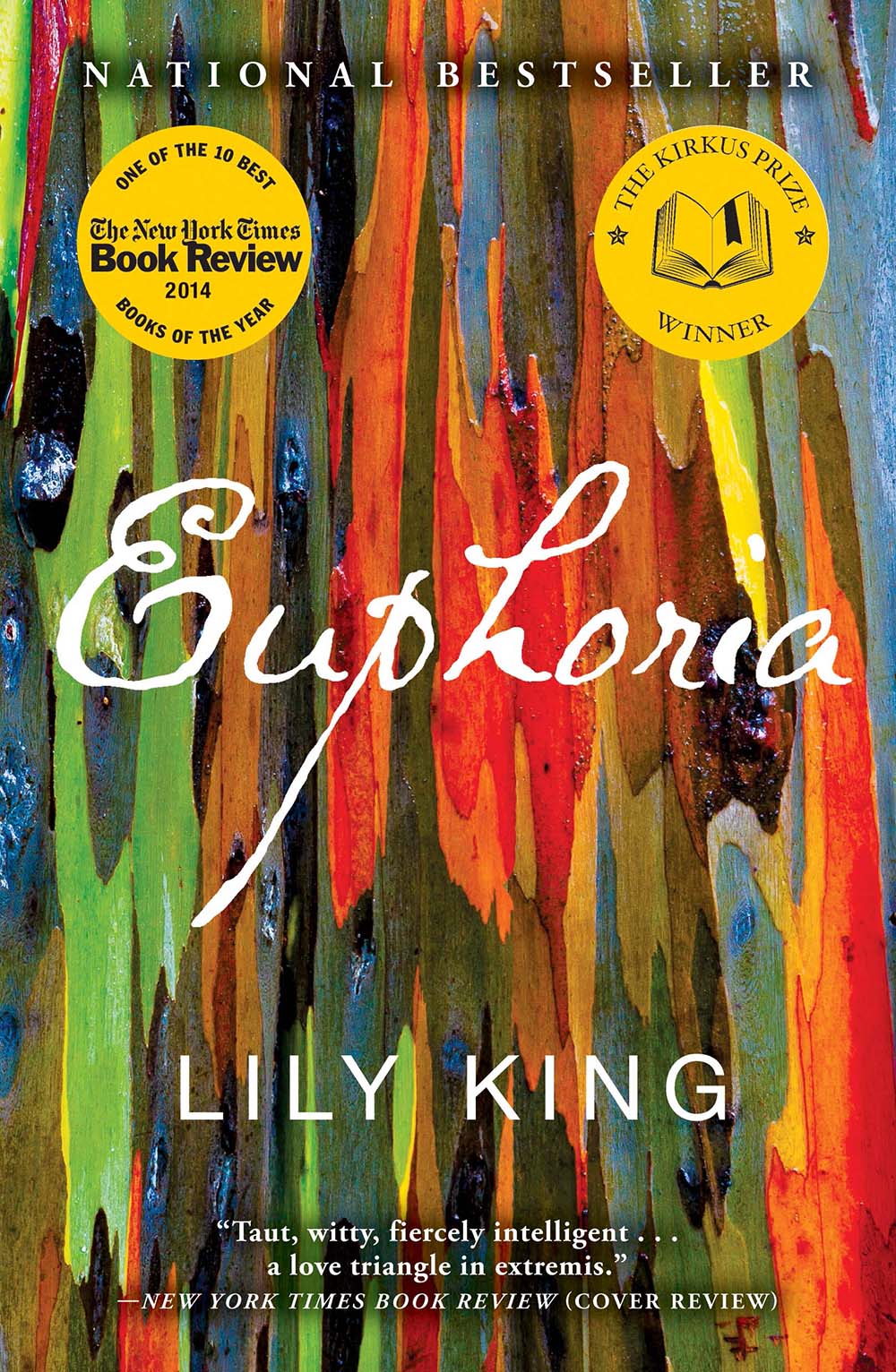I recently listened to a New Agey yet fairly brilliant podcast in which a Buddhist psychotherapist discussed the meaning of the word “desire.” The word, she said in her calming, glassy voice, is derived from the Latin desidius, which means “to be far away from your own star.” Your “star,” as she puts it, is your core self, or your home. The discrepancy between where you are and where you feel you belong is where desire grows and festers.
Lily King’s Euphoria deals largely in the realm of this brand of desire—however pseudoscientific the Buddhist podcaster’s definition may be. The novel’s central players, a trio of anthropologists from Australia, America, and England, are certainly far from their homes in a literal sense, as they move up and down the Sepik River in Papua New Guinea, studying the region’s native tribes. But they are also far from their stars in a figurative sense: each is questioning their place in their field, their relationships, the physical world, and ultimately the universe.
Nell Stone is an unconventional yet lauded anthropologist who is based on the similarly courageous and, later, controversial American scholar Margaret Mead. Schuyler Fenwick, aka Fen (based on Mead’s first husband, Reo Fortune) is her manly and jealous partner, exhausted and deflated by his wife’s success, and hungry to catch up to her. Bankson—an Englishman who has just botched his own suicide—is the inevitable third in their intellectual ménage, an appealingly sensitive (and sensual) loner who tends to Nell’s needs in a way that Fen cannot.
The three are soon swept up in a buzzy merging of minds that the reader can sense building to an imminent climax; King capitalizes on the fact that there is heat in expectation. It is here that the genius of this book lies—in the hot-stomach feeling of excitement that comes just before the inevitable (and inevitably less interesting) main event, in this case a much-needed breach of contract, the consummation of a relationship born from conflated strands of desire.
In her acknowledgments section, King explains that Euphoria was inspired by a few short months during which Mead lived on the Sepik with these two men. And yet King weaves an entire world from this moment in time, through a combination of her lush imaginings and what I can only imagine to be insanely extensive research. She renders this world—the early 1930s, the nuances of the anthropological field, the exotic setting, the confounding specifics of the native tribes—with blatant confidence in a few fine strokes.
King is fluent not only in the histories that her book revolves around, but also in the precarious, difficult language of humanity. To get this right, she knows, is to invest as much in the restraint as in the reveal—and to get that right is to trust the reader a great deal.
The engine that propels this juicy, smart novel is desire—sexual and intellectual, essential and existential. It seeps out of every sentence, filling the reader with the longing of the characters. As we move through the last pages—toward a quick and brutal confluence of events that together make up one of the most powerful endings of any novel I have read—we become conscious of the fact that desire—even our small desire for more pages in a wonderful book—by its very nature, may be fated to go unfulfilled. That as long as we are humans we will be searching and wanting, reaching toward our own dim, burning stars.








